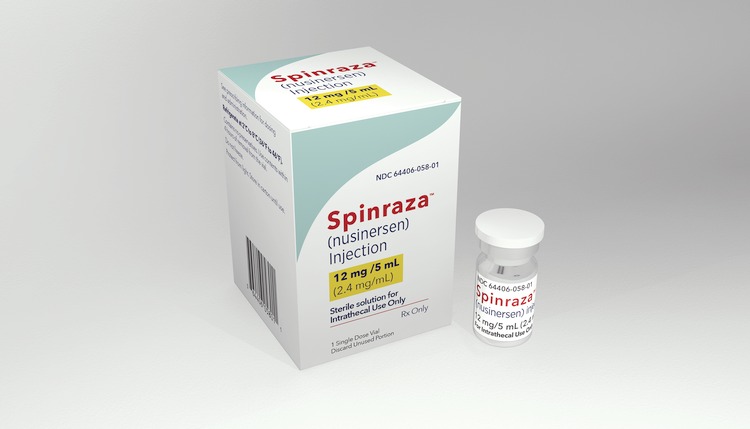Spinraza® is the trade name of a medication that contains an active substance called nusinersen, a chemical belonging to the class of antisense nucleotides (ASO). ASO-s are sequences of nucleic acids mimicking human DNA.
Nusinersen has been designed to attach to the SMN2 gene and modify its structure. As a result, the SMN2 gene starts producing high amounts of the SMN protein. Abundance of SMN protein prevents further degeneration of motor neurons, which is a feature of SMA, and helps them regain lost function.
Spinraza is the only approved drug for the treatment of spinal muscular atrophy in the UK and most of the world.
The below video clip illustrates how nusinersen works to treat SMA:
Efficacy
Spinraza has been proven unusually effective. In controlled clinical trials, more than 60% of treated children with the most severe form of SMA had the disease course reversed. This did not happen to a single child from the control group.
Treatment effects in SMA type 2 and weak 3 were even more astounding. When treated early, children who would barely be able to mainatin sitting position learned to stand and walk unsupported. Even ambulant teenage patients with SMA type 3 had their walking ability increased 3.5-fold after three years of treatment.
At the same time, those who have completely lost motor neurons or muscle tissue due to disease progression, especially in its most severe form, are not likely to see much benefit of this therapy. Like most drugs designed for SMA, Spinraza only improves the function of the existing motor neurons but does not grow new neurons or rebuild muscles.
Administration
Spinraza is administered directly to the spine through lumbar puction: an injection into the spinal cavity. This is sometimes done under local anaesthesia but in most cases no anaesthetics are needed as the injection is linked to only mild pain. Rarely, general anaesthesia might be required.
Here is what happens during lumbar punction; only, most people with SMA will not be in a sitting position,
Dosage
Treatment with Spinraza is initiated by four so-called loading doses: three doses administered in 14-day intervals and a fourth dose 30 days after the third one. A maintenance dose needs to be administered every four months thereafter. Treatment has to be continued for life or until an alternative treatment is available.
Price
Spinraza is among the most expensive drugs in the world. The 2018 published price of a single dose is around €75,000, or approximately £66,000, however government buyers normally negotiate significant discounts on drugs. Therefore, Spinraza needs to be made available under a government-funded drug programme that would be open to all those with SMA. TreatSMA has campaigned for this to happen and on 15 May 2019 we succeeded.
Worldwide availability
Access to Spinraza treatment by country


